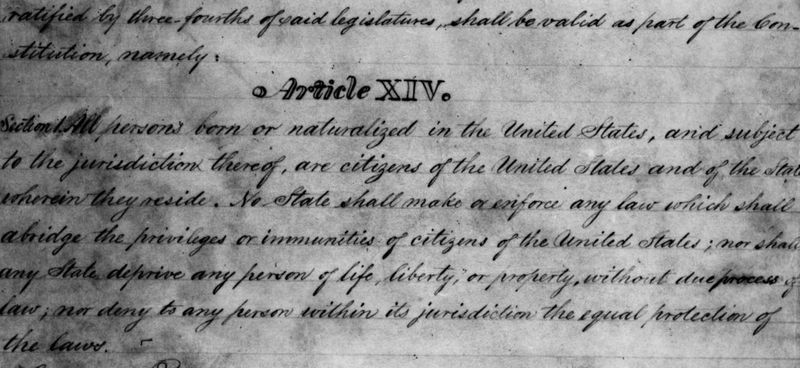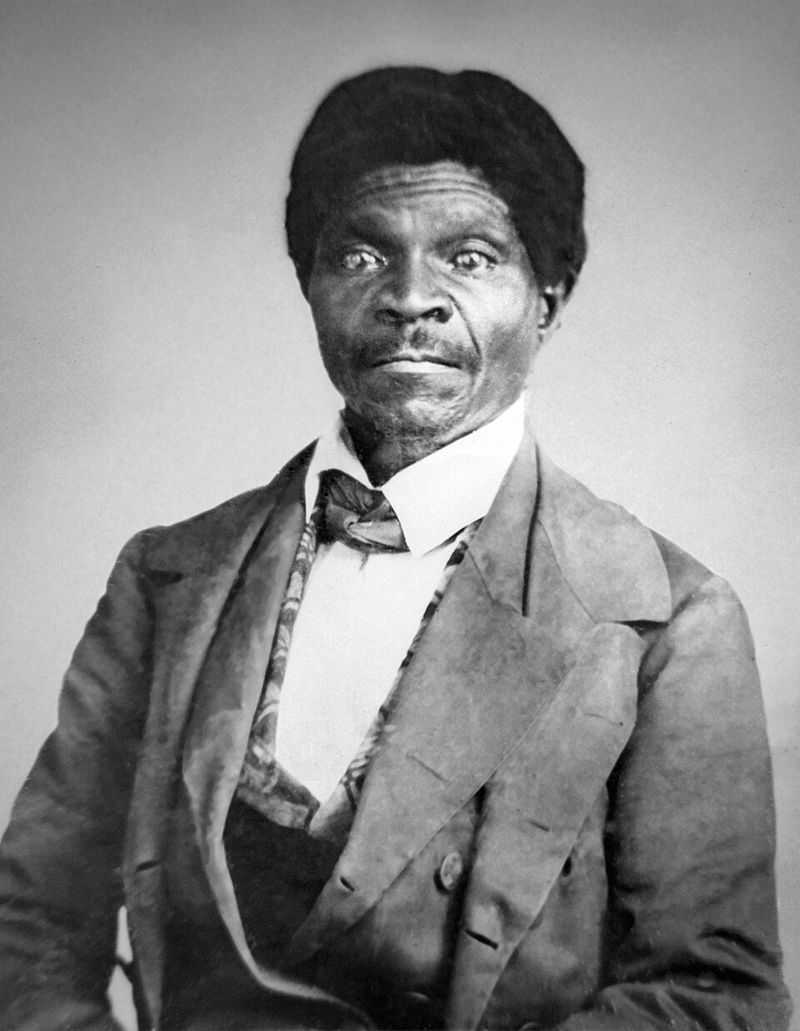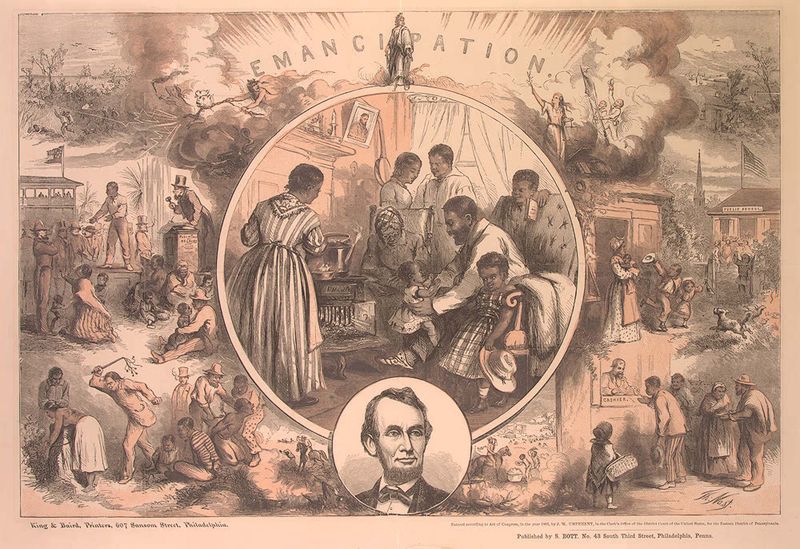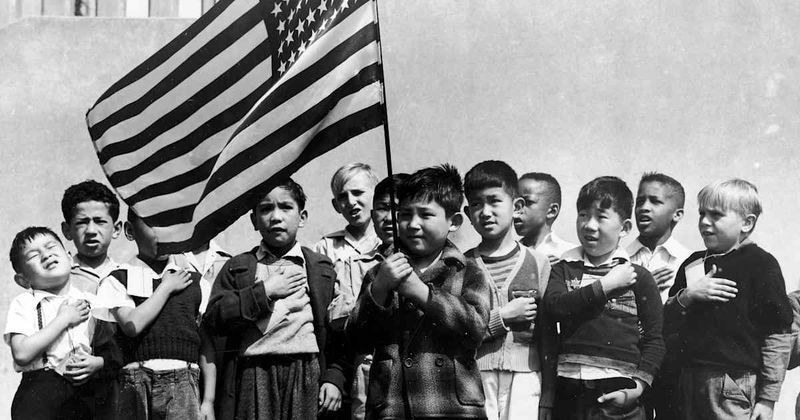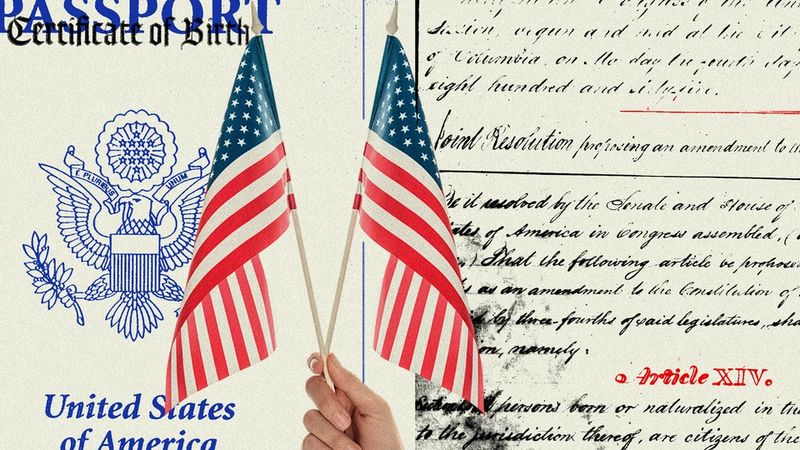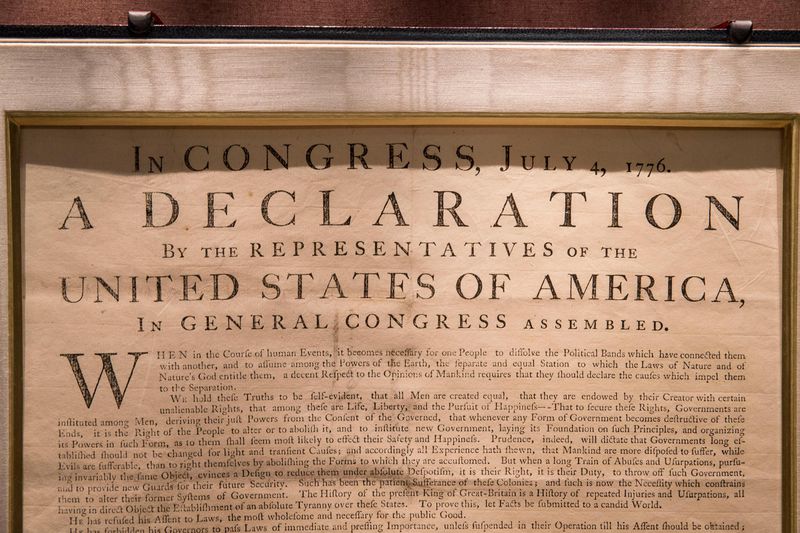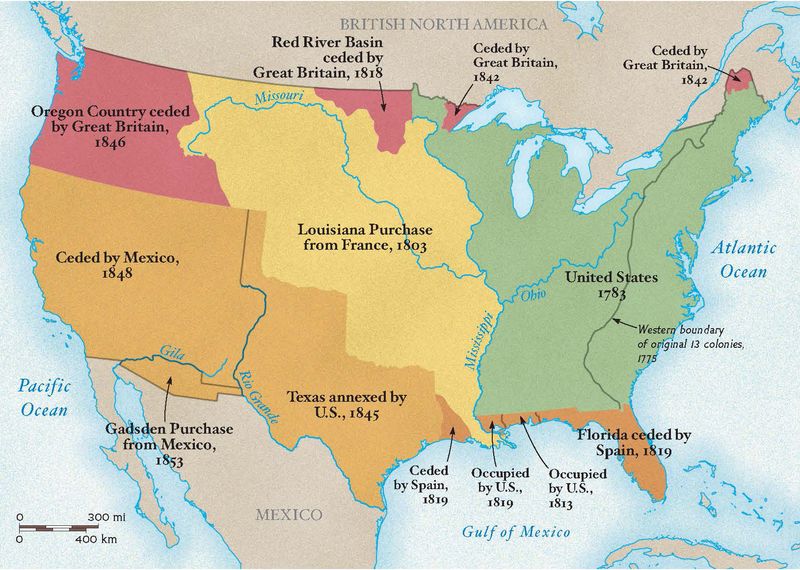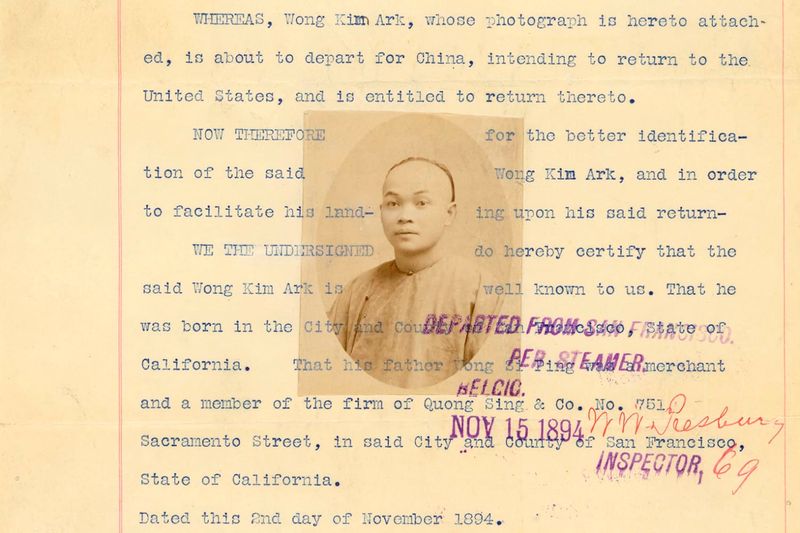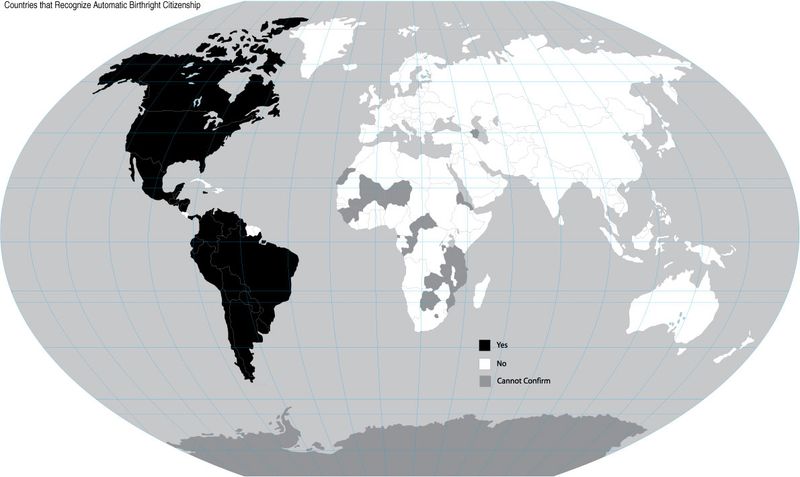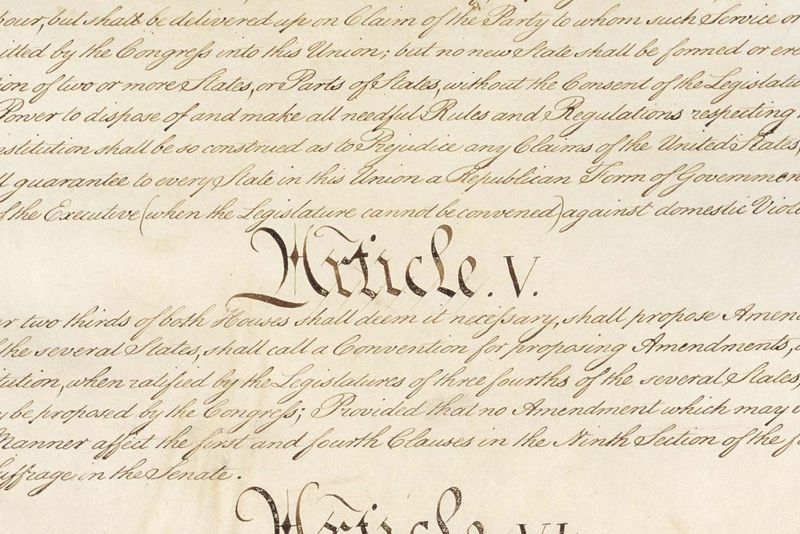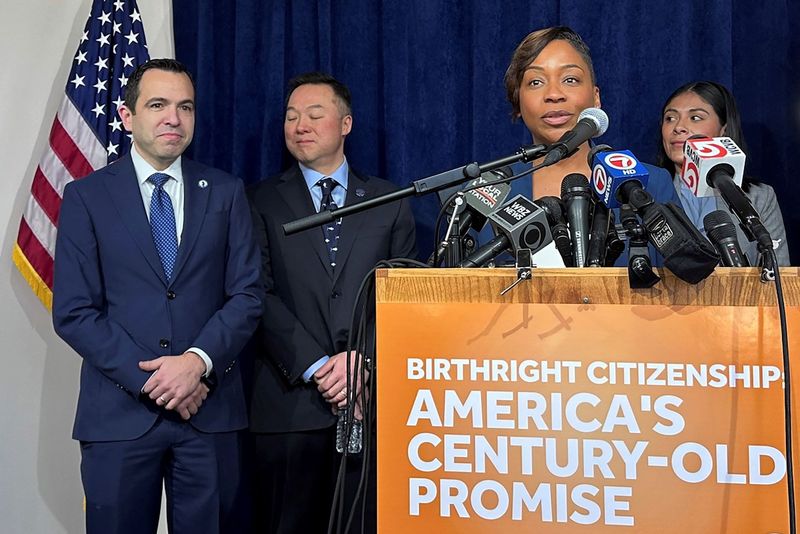Birthright citizenship is one of America’s most important but sometimes misunderstood policies. Anyone born on U.S. soil automatically becomes a citizen, regardless of their parents’ status. This principle has shaped our nation’s history and identity in profound ways. Let’s explore the key reasons why this citizenship rule exists and continues to matter today.
1. The Fourteenth Amendment Guarantees It
The backbone of birthright citizenship resides in five powerful words: “born in the United States.” When the 14th Amendment was ratified in 1868, it established that all persons born on American soil automatically become citizens.
This constitutional guarantee isn’t just a legal technicality—it’s a fundamental building block of American identity. The amendment’s language is remarkably straightforward: “All persons born or naturalized in the United States, and subject to the jurisdiction thereof, are citizens.”
Unlike policies that can be easily changed, this constitutional protection requires an enormous political consensus to alter, making it a particularly stable element of American law.
2. It Overturned the Infamous Dred Scott Decision
Before 1868, one of the darkest Supreme Court rulings denied citizenship to all Black Americans. The 1857 Dred Scott decision declared that people of African descent could never become citizens, even if born free in America.
Birthright citizenship emerged directly as a remedy to this injustice. By establishing that citizenship comes from birth on American soil rather than ancestry or race, the 14th Amendment specifically rejected the Court’s racist reasoning.
This constitutional correction represents one of America’s most important civil rights advancements. The amendment’s authors intentionally crafted language that would prevent future courts from creating second-class citizenship based on race or origin.
3. Protection for Formerly Enslaved Americans
Following the Civil War and the abolition of slavery, formerly enslaved people faced uncertain legal status. Southern states created “Black Codes” specifically to deny rights to freedmen and their children, effectively continuing oppression despite emancipation.
Birthright citizenship provided crucial protection against these discriminatory practices. By constitutionally guaranteeing citizenship to all born on American soil, it prevented states from creating permanent underclasses of non-citizens based on race.
This protection wasn’t just symbolic—it established the foundation for equal protection under law. While full civil rights would take another century to secure, birthright citizenship created the essential legal framework that made those later victories possible.
4. Rejection of European Hereditary Traditions
America’s founders deliberately broke from European traditions where citizenship passed primarily through bloodlines. While European nations primarily used jus sanguinis (right of blood), America embraced jus soli (right of soil) to define belonging.
This choice reflected revolutionary American values that rejected aristocracy and hereditary privilege. Your citizenship wouldn’t depend on who your parents were—a radical concept that aligned with America’s egalitarian aspirations.
The contrast with European systems was intentional and meaningful. By granting citizenship based on birthplace rather than ancestry, America created a more inclusive definition of national belonging that didn’t depend on ethnic or family lineage—a truly revolutionary concept for its time.
5. A Tool for Nation-Building and Immigrant Assimilation
During America’s great immigration waves, birthright citizenship served as a powerful assimilation tool. Children of immigrants automatically became citizens regardless of their parents’ status, creating immediate belonging for new generations.
This citizenship guarantee helped transform diverse immigrant communities into Americans within a single generation. While parents might maintain connections to their homelands, their American-born children had full legal membership in their new country from birth.
The psychological impact proved enormously beneficial for national cohesion. Rather than creating permanent immigrant underclasses across generations (as happened in some European countries), America’s system ensured that the children of newcomers would have full political rights and national identity.
6. Prevention of Statelessness
Statelessness—having no country recognize you as a citizen—creates devastating legal and social problems. Without birthright citizenship, children born to undocumented immigrants or those with complicated legal status could end up belonging nowhere.
The U.S. system elegantly solves this potential humanitarian crisis. By granting citizenship at birth regardless of parents’ status, America ensures everyone born here has basic legal protections and recognition.
This protection matters tremendously in practical terms. Stateless individuals face nearly insurmountable barriers to education, employment, healthcare, travel, and basic legal rights—problems America largely avoids through its birthright system, which provides a clear legal identity to every person born on its soil.
7. Alignment with Core American Values
“All men are created equal” isn’t just a founding phrase—it’s reflected in how America defines citizenship. Birthright citizenship embodies the principle that national belonging shouldn’t depend on wealth, ancestry, or social position.
From the beginning, America positioned itself against systems where birth determined permanent social status. While the country often failed to live up to these ideals, birthright citizenship established an important legal framework supporting equality from birth.
This alignment with founding values helps explain the policy’s durability. Despite periodic challenges, birthright citizenship connects directly to America’s self-conception as a nation where opportunity shouldn’t be limited by circumstances of birth—a principle that resonates across political divides.
8. Managing Territorial Expansion
America’s territory grew dramatically through its history—doubling with the Louisiana Purchase and expanding further with the Mexican Cession. Each acquisition brought new populations with complex citizenship questions.
Birthright citizenship provided a clear, simple framework for integrating these territories. When regions became American soil, children born there automatically became citizens, simplifying the transition process.
Consider Puerto Rico, where despite complex territorial status, anyone born there is automatically a U.S. citizen. Without birthright citizenship, America’s expansion would have created confusing multi-tiered citizenship systems based on when territories were acquired—exactly the kind of complexity the 14th Amendment helped avoid.
9. Simplicity in Legal Application
Legal simplicity might seem boring, but it’s tremendously valuable in citizenship law. The American rule—born here equals citizen—creates clarity that prevents countless disputes and complications.
Countries without birthright citizenship develop increasingly complex rules about who qualifies based on parents’ origins, residency status, and other factors. Germany, for example, has modified its citizenship laws multiple times to address problems with second and third-generation immigrants who weren’t citizens despite being born there.
America’s straightforward approach reduces bureaucratic headaches and legal uncertainties. Hospital birth records provide clear documentation of citizenship status, avoiding complicated ancestry investigations or residency calculations that plague other systems.
10. Strengthening National Identity
America defines itself not through shared ethnicity or religion but through civic belonging. Birthright citizenship reinforces this unique national identity by establishing that being American comes from shared geography and laws rather than ancestry.
This civic-based identity allows America to incorporate diverse populations more successfully than many other nations. The child of immigrants becomes fully American at birth—not a hyphenated or partial citizen waiting for acceptance.
The psychological impact is profound for both individuals and national cohesion. Children born here grow up knowing they belong fully to America, creating stronger identification with national values and institutions regardless of their families’ origins.
11. Supreme Court Confirmation in Wong Kim Ark
The landmark 1898 Supreme Court case United States v. Wong Kim Ark firmly established birthright citizenship’s legal foundation. Wong was born in San Francisco to Chinese immigrant parents who were legally barred from becoming citizens under the Chinese Exclusion Act.
When Wong returned from a trip to China, immigration officials tried to deny him re-entry, claiming he wasn’t a citizen despite his American birth. The Supreme Court ruled decisively that the 14th Amendment meant exactly what it said—birth on American soil conferred citizenship regardless of parents’ status.
This ruling remains the definitive legal interpretation of birthright citizenship. It explicitly rejected arguments that children of non-citizen immigrants should be excluded, setting a precedent that has guided American law for over 120 years.
12. Protection Against Discrimination
Without birthright citizenship, governments could selectively deny rights based on ethnicity, religion, or political factors. History shows this isn’t just theoretical—many countries have used citizenship laws to marginalize unwanted groups.
Myanmar’s denial of citizenship to Rohingya Muslims despite generations of residence there demonstrates how citizenship rules become tools of discrimination. Similarly, Dominican Republic retroactively stripped citizenship from residents of Haitian descent, creating a stateless population overnight.
America’s birthright system prevents these scenarios by removing government discretion over who qualifies for citizenship by birth. The constitutional guarantee applies equally to all born on American soil, regardless of whether they belong to favored or disfavored groups—a critical protection against selective application of citizenship rights.
13. Regional Consistency with the Americas
Birthright citizenship isn’t uniquely American—it’s actually the standard practice throughout the Western Hemisphere. Canada, Mexico, Brazil, Argentina and most other countries in the Americas grant automatic citizenship to anyone born on their soil.
This regional consistency reflects shared historical experiences with colonization, immigration, and nation-building. Unlike European or Asian countries with more ethnically-based citizenship traditions, New World nations generally embraced territorial birth as the primary qualification for citizenship.
This hemispheric approach creates practical benefits through consistency. When neighboring countries share similar citizenship principles, it reduces conflicts over nationality and simplifies movement between nations—part of why the Americas have historically seen greater integration and migration than other regions.
14. Constitutional Amendment Requirement for Change
Changing birthright citizenship would require clearing America’s highest legal hurdle—a constitutional amendment. This process demands two-thirds approval in both houses of Congress plus ratification by three-fourths of state legislatures.
Such overwhelming consensus is nearly impossible to achieve on controversial issues in modern American politics. The last successful amendment was ratified in 1992 after a 202-year journey—and it addressed the relatively uncontroversial topic of congressional pay raises.
This high barrier protects birthright citizenship from shifting political winds. While presidents and politicians periodically suggest changing the policy, the amendment process ensures that only changes with extraordinary, sustained, bipartisan support could actually succeed—effectively making birthright citizenship one of America’s most secure legal principles.
15. Ongoing Debates and Contemporary Relevance
Birthright citizenship remains hotly debated in American politics today. Critics worry about “birth tourism” where pregnant women visit specifically to have American-citizen children, while others object to automatic citizenship for children of undocumented immigrants.
Supporters counter that these concerns affect relatively small numbers while the principle itself remains vital to American identity. They argue that birthright citizenship continues to serve its original purpose of preventing permanent underclasses and promoting integration across generations.
This ongoing debate reflects deeper questions about immigration, national identity, and belonging. While Americans disagree about specific applications, the constitutional principle of birthright citizenship continues to shape how the nation defines itself and who counts as American in fundamental ways.

